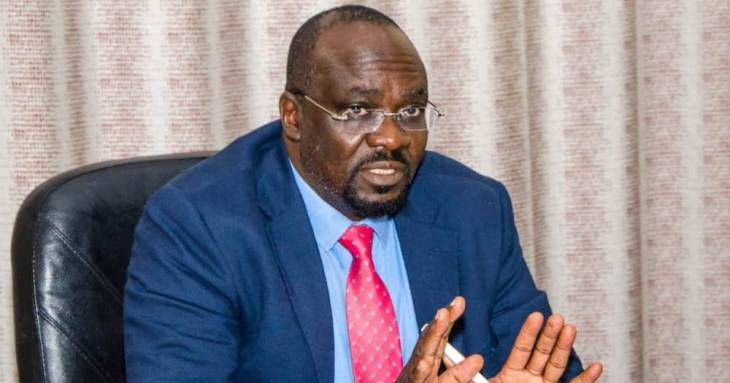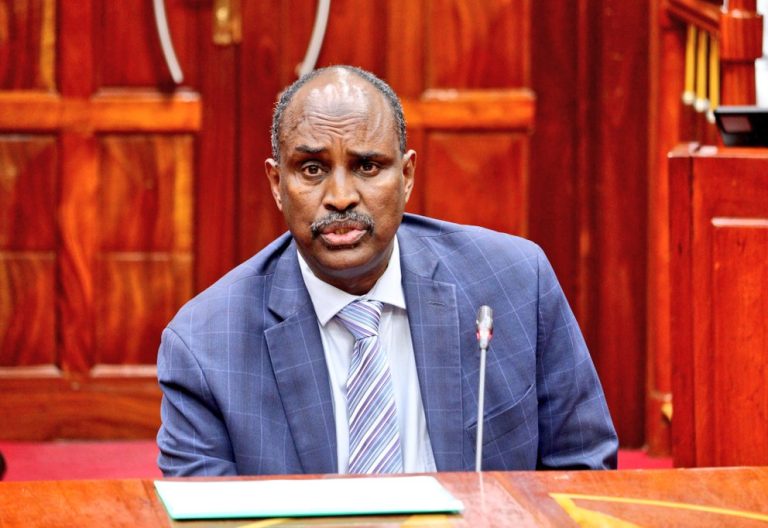Two Kenyan organisations in China-UN top think tanks

In an event held on October 22 in Beijing, two Kenyan think tanks were inaugurated as part of a global South network on poverty eradication and sustainable development. Chaired by the Chinese Academy of Social Sciences (CASS), the network is part of the Global Coalition on Think Tank Networks for South-South Cooperation and the United Nations Development Programme.
Organisations in the network will conduct collaborative research, share research results, and organise global and regional academic exchanges and conferences on poverty reduction and development and to advance the 2030 Agenda for Sustainable Development.
Founded in May 1977, (CASS) is China’s leading academic institution for philosophy and social science research. CASS consists of six academic divisions (Academic Division of Marxist Studies, Academic Division of Philosophy and Literature, Academic Division of History (Chinese Academy of History), Academic Division of Economics, Academic Division of Social, Political and Legal Studies, and Academic Division of International Studies, 41 research institutes, and 173 nonphysical research centers, and supervises 113 state-level academic organisations.
With the advantages of comprehensive disciplines, concentrated talents, and abundant data, CASS carries out creative theoretical exploration and policy research in the process of China’s reform and opening up, and modernisation, and undertakes the mission of improving the level of humanities and social sciences in China as a whole. In addition, it has a large number of academic data, translation works, textbooks, reference books, edited ancient books, theoretical promotion articles and other forms of scientific research achievements.
CASS scientific research achievements contribute to explaining, complementing and furthering the theoretical system of socialism with Chinese characteristics; offer theoretical basis and policy advises for the national reform and opening-up and for making decisions on economic development; function as a theoretical guidance and implementation plan for social development and democracy and legal system building; organise and carry forward traditional history and culture, and advance the development of socialist culture and ideology.
Many of those research achievements have had a significant effect in domestic and overseas academic circles, and generated remarkable social benefits in the reform and opening-up, and social and economic development. CASS plays an increasingly important role in China’s cultural and people-to-people exchanges with other countries.
One of the think tanks is the Africa Policy Institute (API), an independent, not-for-profit Pan-African think tank that provides policy-relevant research and analysis for Africa’s solutions in security, governance and strategic issues.
Established in 2007, API has helped governments, civil societies, as well as regional and international organisations to create a peaceful, secure, and prosperous Africa. As an Institute, its core mission is to conduct in-depth policy research, training, and consultancy that contributes towards policy solutions in Africa on governance, strategy, and security issues through partnership platforms and advocacy.
Its partners and networks range from governments, regional and international organisations such as the African Union, UN agencies and institutions of higher learning. In collaboration with its partners, API provides in-depth policy research and analysis, capacity building and training, policy advocacy and dialogue, networking and partnerships in governance, humanitarian matters, peace and security.
API has created a niche as a preferred institute for organising high-level policy dialogues in the form of conferences, policy forums, workshops, symposiums and public debates. Through these engagements, the API has and continues to build governments’ capacities in policy research, training media personalities on investigative research, and also undertake political management training in partnership.
The second Kenyan organisation, South-South Dialogues, is a brainchild of various professionals in the social sciences who believe that developing countries share the same challenges and, therefore, are best suited to share the best solutions. The team is flexible and can incorporate any kind and level of expertise and experience depending on the core area being studied. This involves scouting and incorporating of the necessary expertise to undertake assignments as the need arises.
The organisation seeks to change the prevailing narrative of the global South as a wasteland of ideas and innovation, to a conversation full of creativity, hope, confidence and resilience among the people in developing countries. It seeks to help in creating a world based on win-win cooperation and mutual respect within humanity. Its mission is to create meaningful and productive communication among poor and developing countries in the search for solutions that can alleviate poverty among their people and achieve their developmental goals.
South-South Dialogues research, documentation and conferencing key areas include, but not limited to the following main programs: Poverty Alleviation and Post COVID-19 Recovery Environment and Climate Change, Education, Health, Political leadership and Governance, Socio-Cultural Development and Humanitarian Assistance.
The writer is the Executive Director of South-South Dialogues, a Nairobi based research and development communication think tank.









